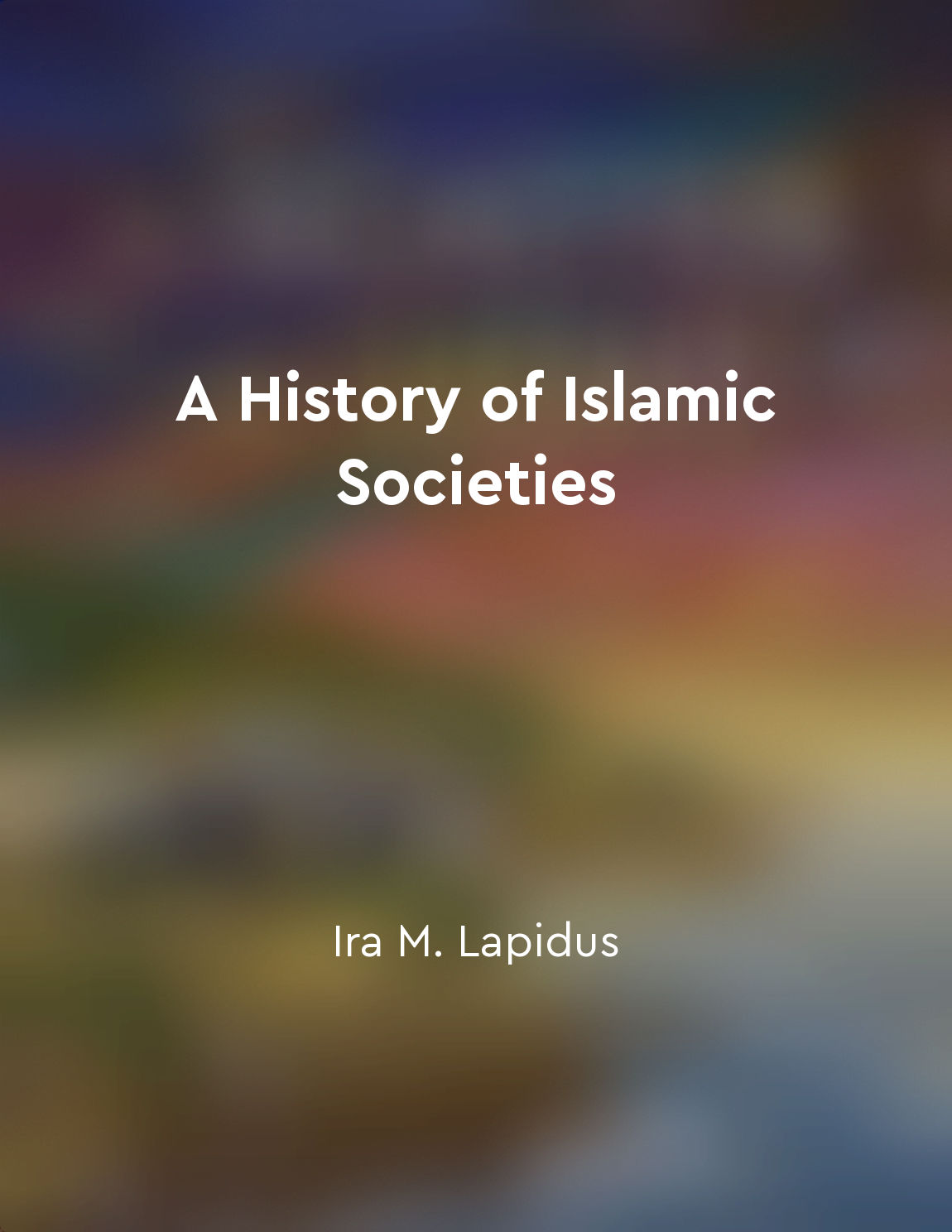Trade played a crucial role in the development of Islamic societies from "summary" of A History of Islamic Societies by Ira M. Lapidus
Trade was a pivotal factor in the growth and expansion of Islamic societies. It not only facilitated economic development but also played a significant role in shaping the cultural and social fabric of these societies. The geographical location of many Islamic lands, situated at the crossroads of major trade routes, allowed for the exchange of goods, ideas, and technologies with various regions of the world. The Islamic world was a hub of trade, connecting Europe, Asia, and Africa. The expansion of Islamic empires, such as the Umayyad and Abbasid Caliphates, facilitated trade by providing a stable and secure environment for merchants to conduct business. The establishment of bazaars, caravanserais, and trading centers further promoted commercial activities and fostered economic growth. The development of a sophisticated financial system, including the use of credit instruments such as bills of exchange and letters of credit, enabled merchants to conduct long-distance trade with ease. The Islamic legal system, based on the principles of sharia, provided a framework for resolving disputes and ensuring fair and ethical business practices, which further encouraged trade and commerce. In addition to economic benefits, trade also had a profound impact on the cultural and social life of Islamic societies. The exchange of goods and ideas led to the spread of knowledge, technology, and innovations across borders. This cultural diffusion enriched Islamic societies, contributing to the development of art, architecture, literature, and science. Moreover, trade fostered cultural exchange and interaction among diverse communities, leading to the creation of cosmopolitan urban centers where people of different backgrounds coexisted and shared their traditions. This cultural diversity and tolerance were exemplified in cities like Baghdad, Cairo, and Cordoba, which thrived as centers of learning, trade, and cultural exchange.- Trade played a crucial role in the development of Islamic societies by promoting economic prosperity, facilitating cultural exchange, and fostering social cohesion. The impact of trade on Islamic societies was multifaceted, shaping their history, identity, and legacy as vibrant and dynamic civilizations that contributed significantly to the global economy and cultural heritage.
Similar Posts
The independence movements in South Asia paved the way for decolonization
The independence movements in South Asia were instrumental in setting the stage for decolonization in the region. These movemen...
Asceticism of the Prophet
The asceticism of the Prophet is a fundamental aspect of his character that sets him apart from others. His detachment from mat...
Technological advancements facilitate trade
Technological advancements have played a crucial role in shaping the landscape of trade throughout history. From the developmen...

Political Islam emerged as a powerful force in the 20th century
In the 20th century, Political Islam gained momentum as a significant force in the Islamic world. This emergence can be attribu...
Trade routes shaped the course of history
Throughout history, trade routes have played a crucial role in shaping the world as we know it today. These routes, connecting ...

